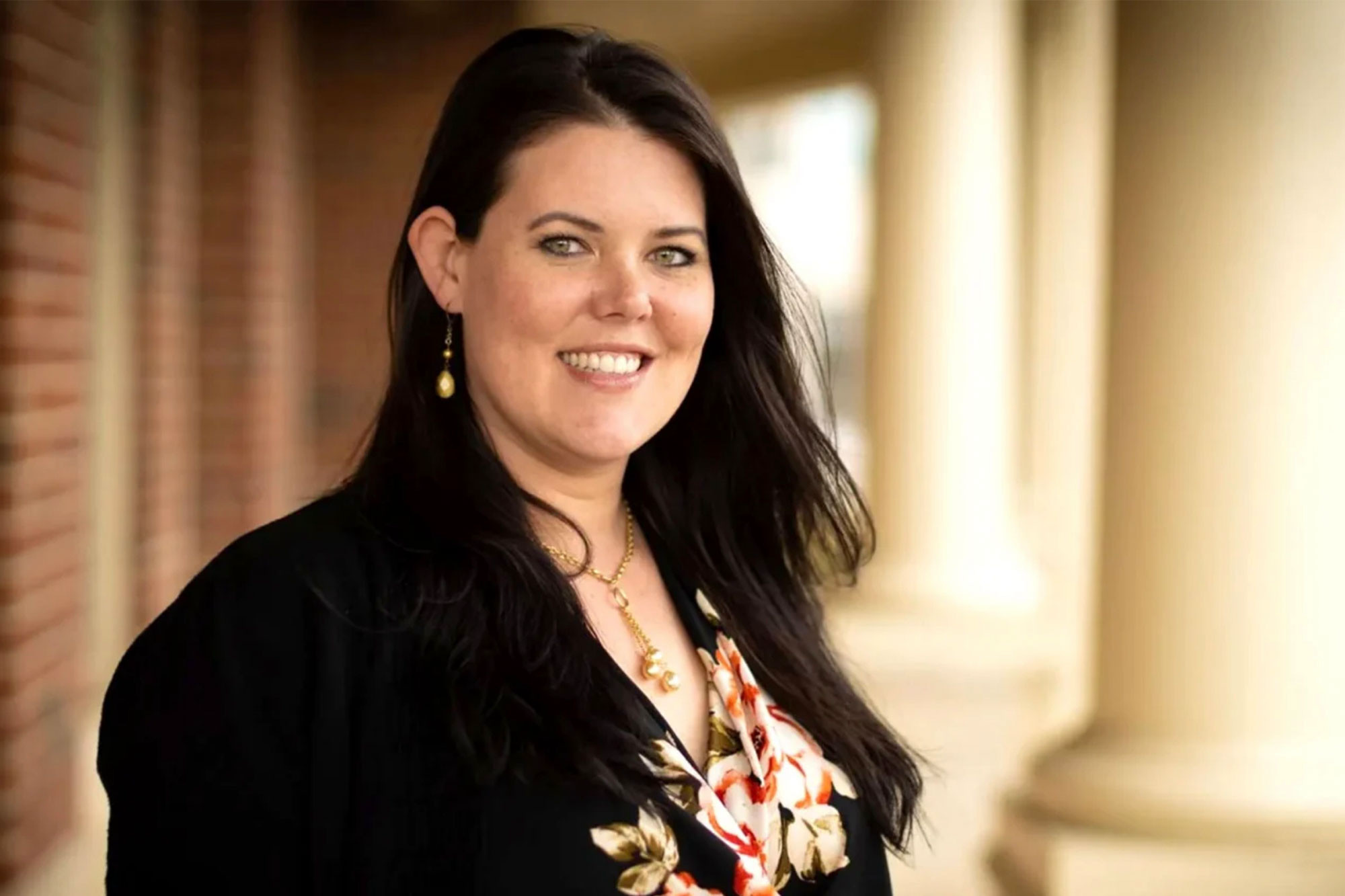When Melissa Riley looks at her 13-year-old son, she sees a talented artist, a funny kid who likes playing pranks, and a gamer who spends a lot of time playing Fortnite with friends.
She sees a young man who’s excited about playing football, and maybe taking some architecture and engineering courses when he starts high school next fall.
But that’s not what the teachers and leaders of her son’s Virginia middle school see, she said. When they look at her son, she believes they see one thing first and foremost: a black kid.
Growing up in the Charlottesville area, Riley said her son never really saw himself as different from the other kids in school. Sure, his skin tone was a little darker — his dad is black and Riley is white and Native American — but Riley never thought it was appropriate to box him in with stifling racial classifications.
“He looks Hawaiian,” she said of her son. “He’s beautiful.”
But she said her son’s views on race and his conception of his own complex identity have been tossed in a blender and mixed up ever since the Albemarle School District adopted an “anti-racism” policy, with an explicit goal of eliminating “all forms of racism” from the local schools.
Riley said that a new anti-racist curriculum launched at Henley Middle School last spring is itself racist, because it indoctrinates students and teachers in a racial essentialist worldview that emphasizes racial conflict and treats students differently based on their skin color.
She said the school has changed her son in ways she doesn’t approve of, filling his head with racial-awareness lessons that emphasize oppression and privilege. Her son now sees himself as different from his mostly white classmates: as a young black man who will have more struggles in life because of his race and because of the systemic racism that is endemic in American life.
“He is changing,” Riley said of her son. “If things don’t go his way or things seem unfair, he will now claim it’s racism. He never did that before. He now identifies as a black man, because that’s how the school told him he looks and who he is.”
A court fight
Riley and her son are among the plaintiffs in a lawsuit filed against the Albemarle County School Board in December by the Alliance Defending Freedom (ADF), a nonprofit conservative legal firm. The ADF lawyers allege the district’s anti-racism policy and curriculum violate the Virginia Constitution’s equal-protection and free-speech clauses and violate parental rights.
Their lawsuit was dismissed last month by a circuit-court judge who seemed to find the district’s policy unobjectionable and declared that there is “nothing inherently evil or wrong” about it.
The ADF lawyers have vowed to appeal the ruling. “Certainly, we were disappointed with the result, no question about it,” said Ryan Bangert, senior counsel with the ADF. “We’re hopeful that the court above on appeal will see things differently, and we’re confident that it will.”
The Albemarle County School Board adopted its anti-racism programming in 2019 and implemented a pilot program at Henley Middle School last spring, as students were returning to the classroom from COVID-19-related school closures. That was when Riley learned about the program.
At its most mundane, the school offered a series of anti-bias lessons and feel-good teachings about positivity and inclusivity. Last summer, for example, Henley Middle School students painted murals in the school hallways with messages such as, “We are equal,” “Happy mind, happy life,” and that life is fragile, “like paper,” according to a local TV news report.
But parents who dug deeper into the curriculum found reasons to be concerned.
The curriculum taught middle-schoolers that racism is “the marginalization and/or oppression of people of color based on a socially constructed hierarchy that privileges white people.” Students were urged to be “anti-racists,” and that by not making anti-racist choices, they were unconsciously upholding “aspects of white supremacy, white-dominant culture, and unequal institutions and society.”
Teachers were trained to identify “white privilege” and to understand that the idea of meritocracy is a myth. They learned about “communication as a racialized tool,” and were taught that “white talk” is verbal, impersonal, intellectual and task-oriented, whereas “color commentary” is nonverbal, personal, emotional and process-oriented — lessons that critics say perpetuate gross racial stereotypes.
‘Non-negotiables’
Some parents spoke up at meetings, complaining that the lessons were rooted in critical race theory, and calling for a pause in the teachings. But the school board and the superintendent dug in, penning an online letter that emphasized “bringing the anti-racism policy to life for all.”
They denied that critical race theory was part of their curriculum but acknowledged that the district offers a professional-development program on culturally responsive teaching. The anti-racism programming was important to correct racial disparities in student access to learning opportunities, respond to reports of racial harassment and bullying, eliminate the unequal demographic impact of policies and programs, and improve longstanding opportunity and achievement gaps among students, according to the letter.
“These are non-negotiables,” the board wrote. “We are firmly committed to achieving these outcomes and to supporting the inclusive programs and activities that make this possible. We welcome all points of view in how best to strengthen our continuous growth model, and we reject all efforts that would have us resist positive change in favor of the status quo.”
Riley said her experiences with her son’s schools through the years have mostly been good. The academics in the local schools are strong, and Riley, a single mom, has sacrificed to make sure her son had access to the schools in the Crozet community.
For most of his school life, race hasn’t really been an issue for her son, Riley said. A former elementary-school principal once tried to get her son to join a mentoring organization for black male students, but she declined, Riley said. “He was not happy with my decision,” she said of that principal. “But this is my son, and I’m his parent.”
Riley said red flags went up when she first learned about the Albemarle School District’s anti-racism policy and a pilot program at her son’s school. She feared that a hyper-focused attention on race and racial differences would result in her son being singled out in the mostly white school. She said she talked to school leaders and told them she didn’t think it was appropriate.
“They said, ‘Well, your son would be a great voice for all black students, and we would love to have him speak for that community,’ ” Riley recalled. “He [was] 12, and I did not think that was his responsibility. But also, he has not had a different experience than any of these other children.”
Riley said she was told that if her son was uncomfortable during discussions on race, he would be offered a safe space. “I told them, ‘No, that is segregation,’ ” Riley said.
She said she was directed to talk to a physical-education coach to get his perspective. She said the coach, who is black, told her that the anti-racism policy and instruction were necessary because “parents are not teaching their children what they need to know about race,” Riley wrote in a memorandum to the court supporting the ADF lawsuit.
“He said parents aren’t parenting anymore, and they need to take over,” she said. “I told him that I chose to be a parent, and that’s my job, and I will not let them be the parent. They are there to teach my child academics. And I will take care of everything else.”
‘Parenting very hard’
Riley said she feels like her concerns have been ignored by school and district leaders. She said she spends a lot of time talking with her son about the racial conflict he’s now experiencing.
“He has not experienced racism here, until now, until they’ve implemented this racist curriculum,” Riley said of her son. “I’m parenting very hard right now.”
Speaking out on the issue has been difficult in the liberal community, Riley said. “There are a lot of people that are mad that we are standing up for our children,” she said. There are a lot of people who don’t feel comfortable speaking out, she said, but she knows there are supporters for her view, including even some teachers.
Riley said she was disappointed, but not discouraged, by the ruling by Albemarle Circuit Judge Claude Worrell II last month dismissing the case because he saw no proof that anyone had been harmed by the district’s anti-racism policy.
According to a transcript of the hearing, Worrell appeared skeptical of the ADF’s case from the beginning. He was hard on their lawyers and didn’t seem to engage with their arguments. He seemed to find the district’s anti-racism agenda unobjectionable.
During the hearing, Worrell, who is black, said “there isn’t any evidence” that the district’s anti-racism policy and curriculum “are racist, divisive in any way that’s meaningful, at least to the court.” In long monologues about racism and schooling, he said, “I think it happens during education that certain people are made to feel uncomfortable about history and their place in it.”
In response to an ADF lawyer who argued that the school isn’t just teaching about racism or the horrors of slavery, but personalizing it to students in the room by dividing up various characteristics — race, sex, religion — into dominant and subordinate cultures, Worrell asked, “Why is that a bad thing? Why are you worried about it? What is wrong with asking students to question themselves and the culture so they can learn something about it?”
He denied that the school district is perpetuating racial stereotypes and said there is value in telling students that the concept of colorblindness is “insufficient in some ways.”
When ADF lawyers argued that the district is trying to indoctrinate students into a particular view on racism, changing how they think, and changing their lives, Worrell responded that “everything the school does gives students an ability to change their lives in school.”
Claims by the ADF lawyers that the district’s policies are discriminatory is “a statement without fact. A statement without any context. It’s just a statement by you that says it’s discriminatory. And it’s just not true,” Worrell said, according to the court transcript. “You tell me that this school board policy discriminates against white kids, and it’s just not true. You tell me that it discriminates against [Riley’s son], and it’s just not true.”
‘Disempowering’
When asked about Worrell’s response to their suit, Bangert, the ADF lawyer, said, “We just have a fundamental disagreement with the court about the nature of the curriculum and the nature of the harm here. And that’s what the judicial process is for, to hash these issues out.”
While ADF’s lawsuit is rooted in alleged violations of the Virginia Constitution, Bangert said, there are universal applications that will be instructive for other districts in Virginia and beyond.
“The problems that we’re seeing in Albemarle County, we’re seeing everywhere. We’re seeing it all across the country,” Bangert said. “And the problem is that school districts are increasingly adopting these curriculums that teach kids that they’re entirely determined by the color of their skin, that their future is completely controlled by their race. But not only that, but their race determines if they fall into a category of oppressors or oppressed, that they are guilty based on their race, or that they are going to be permanently disadvantaged and oppressed based on their race. And it’s a completely disempowering message.”
The lawsuit by the district parents is one of two lawsuits ADF has filed against the Albemarle County School Board. In April, Emily Mais, a former Albemarle elementary-school assistant principal, filed a lawsuit against the board alleging that she was the victim of intense harassment and a hostile work environment for expressing concerns about the district’s mandatory “anti-racism” training. She claims the harassment caused her to suffer from severe anxiety and panic attacks, and ultimately forced her to leave her job.
Reprinted with permission from National Review.




